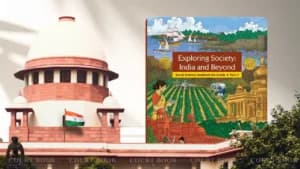The Madhya Pradesh High Court has declared the eligibility criterion requiring a second division in a master’s degree for high school teacher recruitment as invalid. The court ruled that this requirement was "ultra vires" and "manifestly arbitrary," contradicting the National Council for Teacher Education (NCTE) regulations.
The court emphasized that NCTE regulations should have primacy over state rules, as they specify clear percentage-based eligibility criteria. The judges noted that the state’s deviation from these norms was arbitrary since no justification was provided for not adhering to the NCTE’s standards.
Read Also:- MP High Court Quashes Recruitment Process for Violating Rights of Persons With Disabilities Act
“The requirement of division was leading to ambiguities and arbitrariness in the selection process, as different universities follow varied criteria for awarding divisions,” the bench observed.
The ruling pointed out that some universities grant second division at 45% marks, while others set the cutoff at 50%. This discrepancy led to unfair exclusion of candidates with higher marks but a different classification by their respective universities.
The division bench, comprising Chief Justice Suresh Kumar Kait and Justice Vivek Jain, noted that there is no regulatory body at the state or national level that standardizes university grading systems.
“Unless an equivalence chart or standardization framework is established, the prescription of class/division instead of a specific percentage remains an arbitrary and flawed policy,” the court stated.
It further highlighted that even the University Grants Commission (UGC) had eliminated the division-based system in favor of percentage-based qualification requirements, recognizing its inherent arbitrariness.
Background of the Case
The case arose when petitioners aspiring for high school teaching positions challenged the recruitment eligibility criteria outlined in Column No. 5 of Entry-1 in Schedule III of the MP State School Education Service (Educational Branch) Service Conditions and Recruitment Rules, 2018.
The disputed criterion mandated:
“Masters Degree in the relevant subject with Second division and Bachelor of Education (B.Ed.) or its equivalent.”
The petitioners argued that this condition lacked uniformity and was inconsistent with NCTE regulations, which specify percentage-based cutoffs rather than divisions.
Additionally, they pointed out that universities within Madhya Pradesh follow differing division criteria, causing unfair advantages or disadvantages to candidates based on their alma mater.
The state government defended its position, asserting that it had the authority to set independent service conditions under Article 309 of the Constitution. It argued that NCTE regulations were not binding and that the requirement of a second division was a legitimate policy decision.
However, the court rejected this argument, citing the Supreme Court’s ruling in State of U.P. vs. Shiv Kumar Pathak (2018), which held that states cannot enact rules contradicting NCTE regulations.
“The regulations framed by the NCTE would take primacy over the statutory rules framed by the state government for a matter that falls in the concurrent list,” the court ruled.
SC/ST Candidates Entitled to Relaxation
The court also addressed the issue of relaxation for Scheduled Caste (SC) and Scheduled Tribe (ST) candidates, noting that Rule 4A of the MP Lok Seva (Reservation) Rules, 1998, provides a 10% relaxation in minimum qualifying marks for these categories.
Read Also:- Madhya Pradesh High Court Upholds Divorce Over Wife’s Indecent Chats: A Case of Mental Cruelty
However, the court observed that this relaxation had not been incorporated into the 2018 rules. It ruled that SC/ST candidates must receive a 5% relaxation in the minimum qualifying marks for a master’s degree and that this relaxation should be reflected in future recruitment policies.
Recognizing the impact of its decision on past and ongoing recruitment processes, the court directed the state to conduct a supplementary recruitment for candidates affected by this ruling.
“Let the supplementary recruitment process be initiated within two months and completed within six months from the date of this order,” the bench instructed.
Case Title: Avnish Tripathi Versus The State Of Madhya Pradesh And Ors, Writ Petition No. 12985 Of 2021















